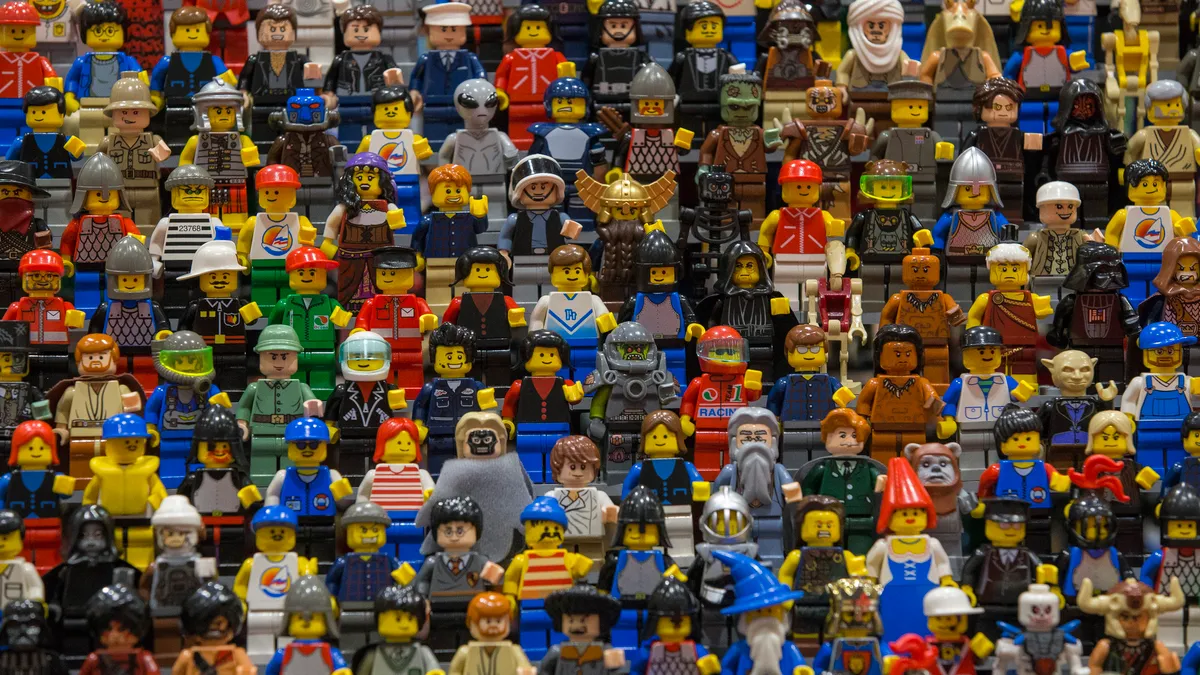Dive Brief:
- The Lego Group has partnered with Epic Games, the company behind the immensely popular Fortnite game, to create a safe place for children to explore the metaverse, according to a press release.
- The metaverse space will be designed to make safety and privacy a priority and provide both children and parents the tools needed to control their digital experience.
- Developing a metaverse space will allow Lego to expand its digital footprint without having to take a risk on mainstream — and potentially less safe — platforms, such as Decentraland and Roblox, whose users tend to skew older.
Dive Insight:
Lego's digital expansion is a timely one, especially as children start using the internet at younger and younger ages. As Lego's target audience is children, the brand will naturally want to meet children where they are. Epic Games is in a similar spot. While the average Fortnite player is between the ages of 16 and 24, the company has shown interest in expanding to younger audiences to nurture long-term loyalty. In 2020, the game developer acquired SuperAwesome, a company that creates technology to make digital engagement safe for children.
As interest in the metaverse grows, children are likely to become interested in participating. However, preexisting metaverse platforms such as Roblox and Decentraland are calibrated for teens and older, presenting challenges for both parents and companies that market to very young children. Toy companies such as Lego may be wary of entering such spaces, which are ripe with issues of their own. Parents may also be concerned about letting children use the platforms.
"Kids enjoy playing in digital and physical worlds and move seamlessly between the two," Niels B. Christiansen, CEO of The Lego Group, said in a press release. "We believe there is huge potential for them to develop life-long skills such as creativity, collaboration and communication through digital experiences. But we have a responsibility to make them safe, inspiring and beneficial for all."
Lego has long been in the video game space, starting with its 1997 release, Lego Island. In the time since, the company has produced a total of 85 video games based on its products. However, while these games allow for local multiplayer, meaning people can play together if they are on the same couch, or in a co-op, they do not allow for online multiplayer participation. Players aren't able to play on the internet with friends or strangers. The new platform would allow for children to play online with friends and is a natural progression for the company in an increasingly online world. It gives children what they want, while also promising parents peace of mind.
The partnership with Epic follows a period of significant growth for Lego, which saw sales jump 27% in 2021 as kids and adults embraced its building sets during the pandemic. With growth rates expected to drop back to pre-pandemic levels as the health crisis abates, Lego is jumping on one of the big trends to emerge for brands looking to engage digital consumers.















